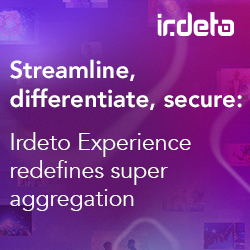The global race towards 5G adoption not only encompasses upgrading connectivity; it represents a pivotal shift in how societies and industries operate. In Malaysia, this transition is fueled by ambition and strategic imperative. As the nation seeks to position itself as a digital frontrunner in the region, the role of telecom vendors becomes increasingly crucial in propelling this evolution.
Beyond Telecom
In a recent article, the expansive impact of 5G adoption in Malaysia was highlighted. The article emphasized that 5G is not merely a technological upgrade but a catalyst for broader socio-economic transformation. The report also highlighted the pivotal role telecom vendors play in this journey, as they are at the forefront of driving innovation and are developing the infrastructure necessary for 5G deployment.
Malaysia's journey towards 5G adoption has been carefully mapped out. In a report, the exploration of 5G adoption in Petaling Jaya underscores the nation's commitment to embracing next-generation technologies. Notably, Celcom, Malaysia's oldest mobile telecommunications provider, is partnering with the Petaling Jaya City Council to advance its 5G technology. The company aims to support Petaling Jaya's goal of becoming an intelligent city by introducing 5G ‘Intelligent City’ and ‘Public Safety’ solutions. These solutions were unveiled alongside the launch of MBPJ's Smart Centre, which focuses on enhancing daily operations for various stakeholders across industries.
Celcom's dedication to advancing 5G technology is unmistakable, demonstrated through a range of initiatives. These efforts encompass pioneering projects such as launching Malaysia's inaugural 5G Live Cluster Field Trial situated in Petaling Jaya and empowering Universiti Teknologi Malaysia as the nation's premier 5G-enabled campus. The company is working to commercialize 5G use-cases through collaborations with industry partners for sustainable ecosystem development.
Additionally, a significant milestone in Malaysia's progression towards 5G technology involves the development of its second 5G network, according to reports. This initiative highlights the significant investments made by both public and private sectors in laying down the groundwork for a robust 5G infrastructure. Moreover, Malaysia is ending its single 5G network strategy and will build a second network to address operator competition and pricing concerns. A new state-owned entity will be launched once the current network reaches 80% coverage in populated areas.
This change aims to promote sustainability in the telecommunications industry and end the monopoly associated with the current network. The new network could be operational by next year, with the current network expected to reach 80% coverage by the end of the year. The decision to move away from a single network plan comes after concerns were raised about national security threats and challenges were encountered in gaining operator support with the previous strategy.
Partnerships for Progress
Partnerships between telecom vendors and key industry players further accelerate Malaysia's 5G ambitions. Ericsson and Intel, for instance, have teamed up to drive 5G development in Malaysia, focusing on enterprise use cases. This collaboration aims to leverage 5G technology to unlock new opportunities across various sectors, from manufacturing to healthcare, fostering innovation and economic growth.
Ericsson's partnership with Digital Nasional Berhad (DNB) underscores the transformative potential of 5G technology. By leveraging 5G advanced capabilities, they aim to propel Malaysia into a leading digital nation.
Additionally, Ericsson and DNB have teamed up to improve DNB's 5G network with 5G-Advanced technology. This partnership focuses on enhancing network performance, introducing new applications, and optimizing the user experience. They plan to develop use cases for public events, industrial surveillance, and automation, as well as drive 5G adoption for enterprises and Small and Medium Enterprises (SMEs) to help Malaysia's digital economy grow.
The collaboration also includes efforts to enhance network security, energy efficiency, and sustainability. Ericsson and DNB aim to make Malaysia a leading digital nation by upgrading DNB's 5G network with the latest technology and offering affordable 5G connectivity for Malaysian subscribers.
Moreover, the Ministry of Communications and Multimedia Malaysia (MCMC) recognizes the pivotal role of 5G in enhancing the nation's regional competitiveness. In a statement released by the ministry, the importance of strategic collaborations with telecom vendors to accelerate 5G deployment and maximize its benefits was highlighted. Such partnerships are instrumental in unlocking the full potential of 5G technology and positioning Malaysia as a regional leader in the digital landscape.
In just over a year, Malaysia's 5G rollout has made significant progress, benefiting over 40% of populated areas with faster and more resilient mobile connectivity. By 2024, it is expected to reach 80% coverage. This bold maneuver has catapulted Malaysia into the ranks of the fastest adopters of 5G technology, paving the way for an expedited realization of the advantages inherent in a digital economy. The ongoing deployment focuses on rapid delivery, affordability, performance, customer experience, and security, with spectrum allocations ensuring a world-class user experience even in rural areas.
Furthermore, studies forecast a boost in Malaysia's GDP and job creation as a result of 5G adoption. Beyond economic benefits, 5G has the potential to address climate change and social inclusion, fostering innovation in various sectors. Overall, these partnerships with institutions and global achievements highlight Malaysia’s commitment to accelerating its digital transformation.










